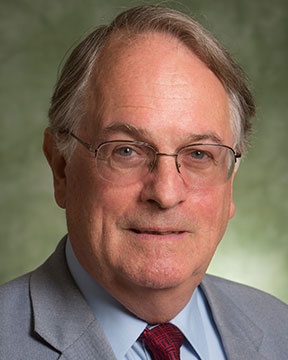
Professor Stanley Whittingham was born in Nottingham in Great Britain. He studied at Oxford University and completed his doctorate there in 1968. After a postdoctoral fellowship at Stanford University in the United States, he worked for the Exxon and Schlumberger oil companies before becoming a professor at the State University of New York at Binghamton in 1988. Storing electrical energy in batteries is a key factor in solving the world's energy supply. The element lithium is useful in batteries since it willingly releases electrons. In the 1970s, Professor Whittingham developed an innovative cathode in a lithium battery. This was made from titanium disulphide which, at a molecular level, has spaces that can house lithium ions. Whittingham's contributions were crucial for the development of lithium-ion batteries, which are used in for example mobile phones and electric cars. He was granted the Nobel Laureates in Chemistry in 2019.